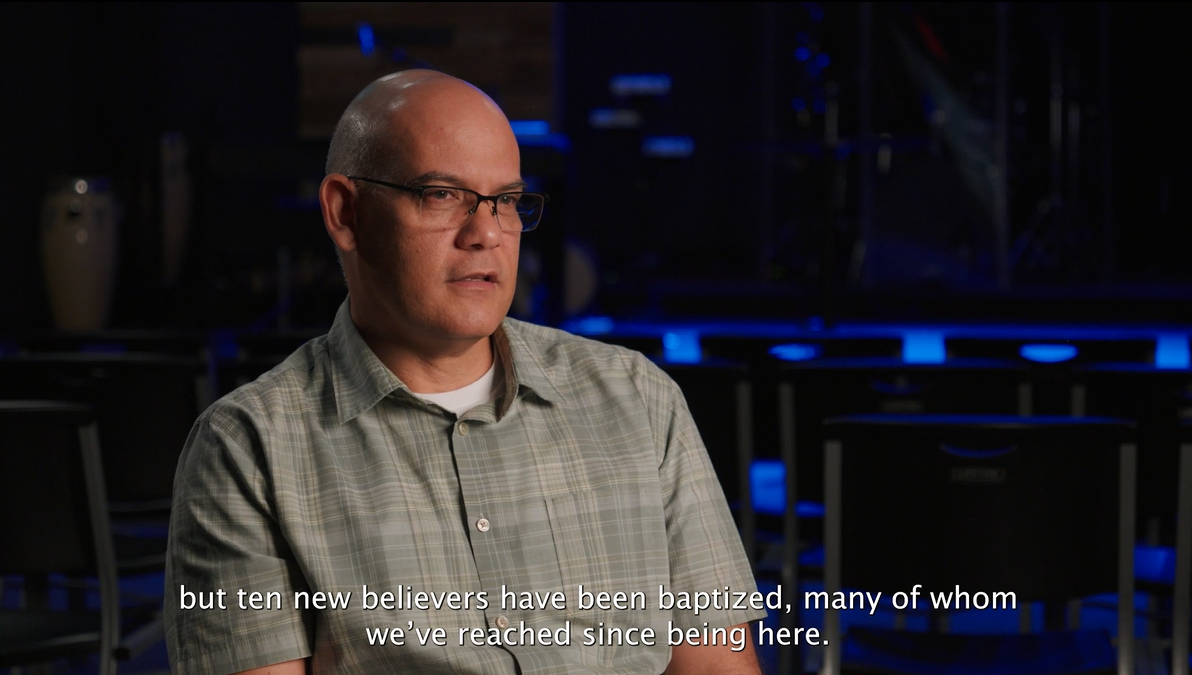SBC 22 Recap
The SBC has been in the news a lot lately, and rarely for positive reasons. However, having just concluded the annual meeting of messengers in Anaheim, I thought I would bring you a recap from someone who was there.
The happenings of the SBC don’t always affect UBA churches on a daily basis, but it helps to know more about the entity through which we partner to do national and international mission work.
I left Anaheim very encouraged.
We are still better together.
A Positive Step Forward Regarding Sex Abuse Prevention
Guidepost Solutions, a secular and independent third-party firm, issued a report last month at the request of the SBC Sexual Abuse Task Force (SATF). It found a small group of influential Southern Baptist leaders had routinely silenced and disparaged sexual abuse survivors over the past two decades. This group had ignored survivors' calls to stop predators and had secretly maintained an internal list of accused offenders at churches while publicly stating that the SBC couldn’t publish such a resource for the public.
The Guidepost report contained a number of recommendations for the SATF to consider forwarding to the SBC messengers for approval. It should be noted here that this is how the SBC polity works—churches hold the vast amount of authority in the SBC because there is no denominational hierarchy. Thus, the SATF doesn't have the authority to simply enact changes that then affect the denomination as a whole.
The SATF recommended—and messengers overwhelmingly approved—two initial steps in the process of correcting the systemic mistakes highlighted in the Guidepost report. The first is appointing a volunteer Abuse Reform Implementation Task Force (ARITF), a group that will roll on a year-to-year basis serving as a resource for the convention, entities, and associations that seek help with reform measures. This group will also oversee and report back to the convention regarding the costs and effectiveness of the second step towards reform: the “ministry check” website.
The “ministry check” website will maintain a record of pastors, employees, and volunteers who have been credibly accused of sexual abuse and who have been or are associated with a Southern Baptist entity. This website would be operated by a credentialed and independent third party and include offenders who confessed, were convicted of a criminal charge, or had a civil judgment rendered against them. A credible accusation can also be confirmed by an independent third party hired by any church, such as a law firm.
The SATF also made a number of requests to entities, state conventions, and associations. For more information on these steps, including details on the website to be set up, see the SATF FAQs here.
I’m confident that we will be hearing more from the ARITF in the coming weeks and months as the SBC continues to engage steps to make our denomination safer for its people, more caring for survivors, and also a more difficult place for abuse to occur.
In the meantime, I highly encourage church leaders to attend the next MinistrySafe seminar in their area (frequently offered in partnership between state conventions and local associations) to evaluate their own policies and procedures and consider training their churches using the churchcares.com curriculum.
What About Liberal Drift In The SBC?
If you read Twitter throughout the annual meeting or leading up to it, you might be convinced that one of the most theologically conservative evangelical denominations was plagued by liberal drift. I can assure you that it is not.
In the words of—yes, someone on Twitter—this convention was not one of liberal versus conservative; it was one of neo-Fundamentalism versus conservatism, and extremism was rejected at virtually every turn by the overwhelming majority of messengers.
Bart Barber, the newly elected President of the SBC, is a conservative, small-town Texas pastor and was elected 60%/40% in a runoff over Ted Ascol. You can read more about Bart Barber here.
The Role of Women in Ministry Remains a Question
If there is a lingering, contentious theological issue at present within SBC life that will have lasting effects on the convention: the role of women in ministry is that issue. This year, the debate centered around Saddleback church’s ordination of three women on their staff: a youth minister, children’s minister, and pastoral care minister. You can read the account of the Credential's Committee’s (CC) actions here.
This debate left several unanswered questions.
Does the “the office of pastor is limited to men” (Art. VI, BF&M 2000) mean only senior pastors or all “pastors?” If women employed as youth pastors or children’s pastors simply change their title to ministers, does that make a material difference in the argument?
Alluding to Adam Greenway’s question, how closely must a church be in alignment with the BF&M 2000 in order to be considered in friendly cooperation with the SBC? (My friend, Tony Wolfe, wrote an excellent article about the nature of cooperation in the SBC if you're interested).
These questions are just the tip of the iceberg. Furthermore, these are questions that the SBC is, in my mind, incapable of handling from the floor of an annual meeting. That is why I voted in favor of Adam Greenway’s friendly amendment to the CC’s recommendation to study what friendly cooperation means and all the possible implication in the SBC. This issue remains unresolved, and we will see what becomes of it over the next year and next summer in New Orleans.
Overall Conclusions
I left Anaheim very encouraged. First, we did what we needed to do in passing the first of many sexual abuse reforms and to lay the groundwork for the future. We displayed a commitment to those reforms in the number of people voting for them and how the money was allocated from entity budgets.
Second, the right people won the elections, from the pastor’s conference to the Executive Committee to the President’s cabinet—though I was touched by the former Green Beret who nominated himself for second vice president.
Third, those with demeaning or extremist agendas were thwarted at every turn and the more than 150 media members present took note. Is there more to be done? Of course. But I remain convinced that we are still better together.
Josh Ellis is Executive Director of Union Baptist Association. He has a PhD in Leadership Studies and has served on the UBA staff since 2005. With both practical and scholarly knowledge, he leads the association into innovative collaboration for the sake of strategic gospel advancement.










Ask these questions to move past ministry competition and toward real relationships with other pastors and ministry leaders.